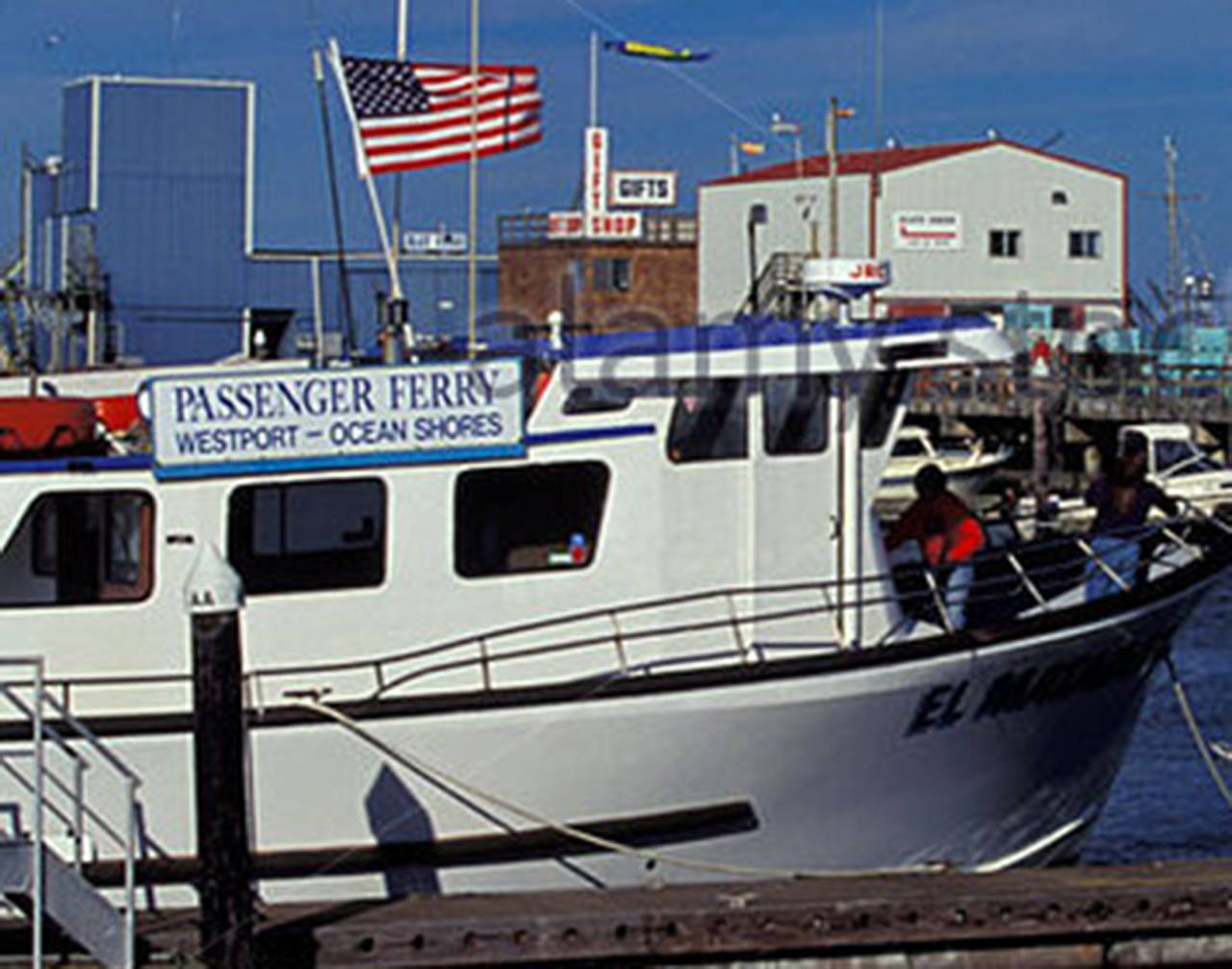With Grays Harbor Transit as the lead agency behind the proposal, Ocean Shores is making restoration of passenger ferry service to Westport one of its top priorities to take to the state Legislature in the upcoming 2019 session, which gets underway in Olympia next month.
The ferry proposal, with a $200,000 request “toward the business plan development effort for the Ocean Shores to Westport ferry service,” is the No. 2 legislative priority listed in a presentation to lawmakers prepared by Ocean Shores City Council member Jon Martin, the city’s liaison to the Legislature.
“This has a lot of support from every representative that we talk to, ” Martin said.
The top priority continues to be coastal erosion at the North Jetty area, where the city is concerned the sewer plant could be jeopardized. The city is asking for $150,000 to help match funds from the U.S. Army Corps of Engineers for planning to protect the sewer plant, located about a quarter mile from the jetty.
Other requests from Ocean Shores include:
• $140,000 to add to $235,000 the city already has set aside for developing what is being called the high dune trail and conservation project, which is a planned recreational and fire-break access trail starting at Damon Road to the Pacific Boulevard beach access in the first phase.
• Overall support for ongoing investment in the Public Works Trust Fund after the Legislature previously diverted funds from infrastructure programs to address operating budget shortfalls.
• Funding for law enforcement training, with cities like Ocean Shores having trouble just recruiting police and then having to pay costs of training in addition to salaries and benefits.
“Those are five items that we are looking at and three of them actually affect us. Two affect us indirectly, but they are part of what all the cities within the state are looking for,” Martin said.
Martin and Mayor Crystal Dingler recently met with state Sen. Kevin Van De Wege, D-Sequim, who represents the large 24th District that includes Ocean Shores. Van De Wege is chair of the Senate Agriculture, Water, Natural Resources & Parks Committee and serves on the Senate Ways & Mean Committee. “We had a very good discussion to put this out in front of him, and most of this stuff he was very supportive of,” Martin said.
The City Council on Dec. 17 unanimously approved the list of priorities and Martin now intends to make a formal presentation and hand-deliver the requests to lawmakers.
Martin said the sewer plant protection is the top priority for the city with the ongoing effort by the Army Corps of Engineers. The dune trail request would be to help start the long-proposed project, with the city actually bearing most of the cost. “These are actually small requests, so there is a good chance we could get some of this,” he predicted.
Legislators representing districts in Grays Harbor and Pacific County will be meeting with local officials and citizens from 11:30 a.m.-1:30 p.m. on Jan. 4 at the annual Legislative Send-off at the Aberdeen Rotary Log Pavilion, sponsored by Greater Grays Harbor Inc.
Dingler explained the city is in a supportive role to Grays Harbor Transit in the request for help with the ferry proposal, which mostly is for planning at this time. “They would be the ones actually asking for the money,” she said.
The ferry request formally is called “enhancing coastal tourism,” and it states: “Several years ago (2008), the ferry between Ocean Shores and Westport was discontinued due to sediments filling in the ferry channel. Through a collaborative effort between the two cities and Grays Harbor Transit — and with support from the Quinault Indian Nation, the Port of Grays Harbor, and Grays Harbor County — the parties have studied the earlier ferry system and smaller ferry operations throughout the region, and worked with a knowledgeable ship builder on our team to determine possible strategies for re-linking the two cities through a walk-on ferry.”
The proposal estimates the ferry would boost tourism by about 50,000 additional visitors a year and more than $5 million in annual spending on hotels, restaurants and retail shops and services.
“That significant increase in tourism for both of our coastal communities would help businesses thrive, increase sales tax and other revenues, and provide a much-needed resilience factor.”
According to Dingler, Grays Harbor Transit has said it could still be three to five years before a ferry service is up and running. “I’m certainly hoping we are doing it a lot faster than that,” Dingler said of the timetable. “I don’t see a reason to drag it out like that.”



